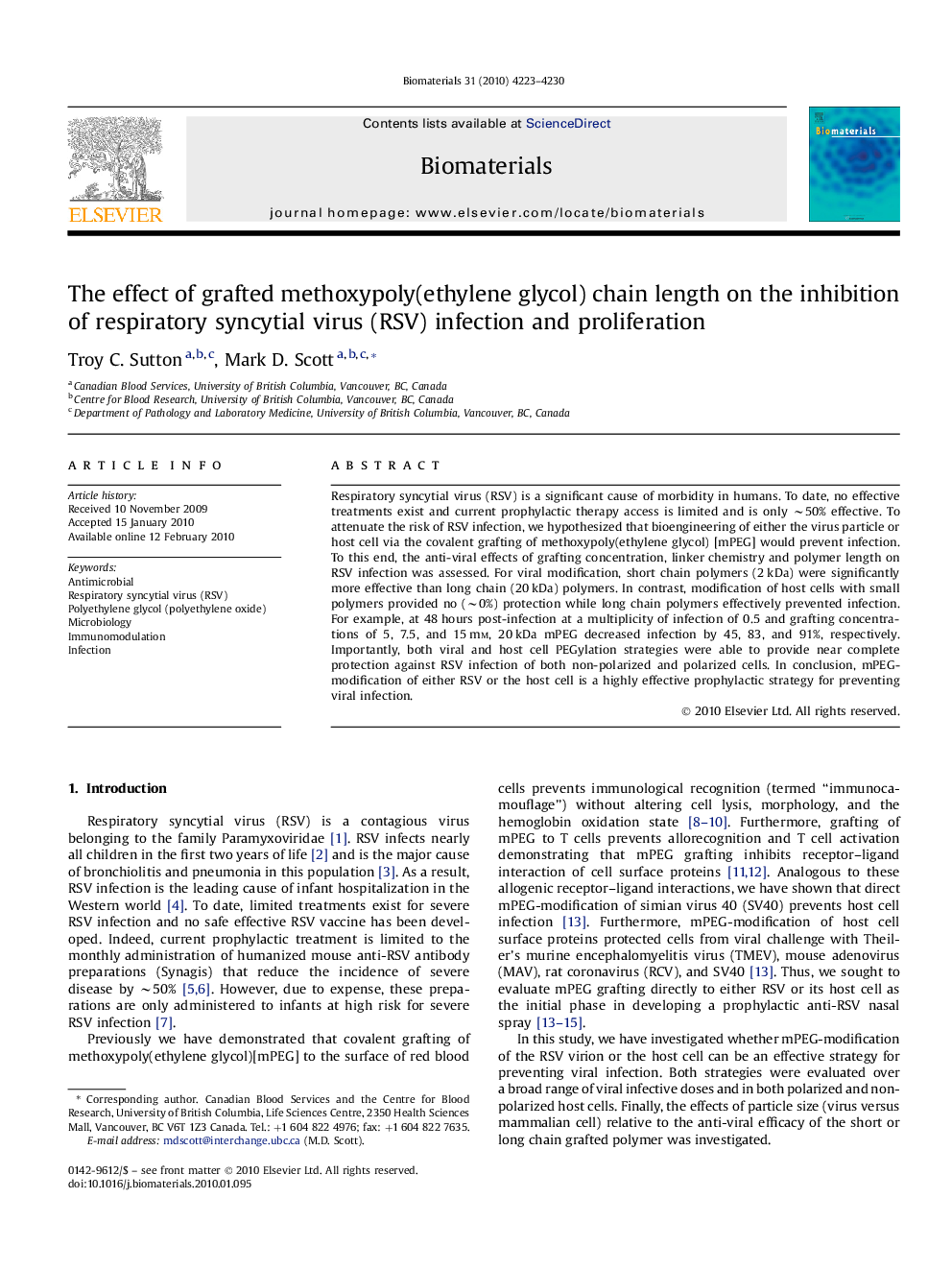| کد مقاله | کد نشریه | سال انتشار | مقاله انگلیسی | نسخه تمام متن |
|---|---|---|---|---|
| 9131 | 617 | 2010 | 8 صفحه PDF | دانلود رایگان |

Respiratory syncytial virus (RSV) is a significant cause of morbidity in humans. To date, no effective treatments exist and current prophylactic therapy access is limited and is only ∼50% effective. To attenuate the risk of RSV infection, we hypothesized that bioengineering of either the virus particle or host cell via the covalent grafting of methoxypoly(ethylene glycol) [mPEG] would prevent infection. To this end, the anti-viral effects of grafting concentration, linker chemistry and polymer length on RSV infection was assessed. For viral modification, short chain polymers (2 kDa) were significantly more effective than long chain (20 kDa) polymers. In contrast, modification of host cells with small polymers provided no (∼0%) protection while long chain polymers effectively prevented infection. For example, at 48 hours post-infection at a multiplicity of infection of 0.5 and grafting concentrations of 5, 7.5, and 15 mm, 20 kDa mPEG decreased infection by 45, 83, and 91%, respectively. Importantly, both viral and host cell PEGylation strategies were able to provide near complete protection against RSV infection of both non-polarized and polarized cells. In conclusion, mPEG-modification of either RSV or the host cell is a highly effective prophylactic strategy for preventing viral infection.
Journal: Biomaterials - Volume 31, Issue 14, May 2010, Pages 4223–4230